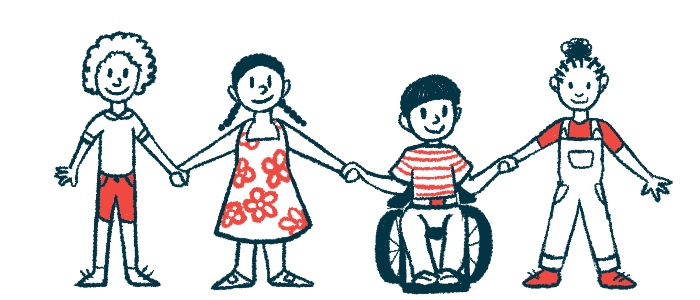Arbaclofen Improved Behavior of Almost Half of Children in Phase 3 Trial
Testing scores found to mirror clinician assessments of behavior

Arbaclofen, an investigational medicine for fragile X syndrome, was found to improve certain aspects of behavior in about half of children, ages 5 to 11, who entered a placebo-controlled Phase 3 clinical trial.
The findings unfolded from a new look into trial data by therapy developer Seaside Therapeutics, before handing over its exclusive rights to the medication to Allos Pharma.
The clinical trial (NCT01325220), which enrolled 172 children with fragile X, had been completed in 2013.
“These findings comport remarkably well with experiences reported by clinicians involved in the clinical trials, who reported that [approximately] 50% of those receiving arbaclofen showed clear and substantial improvements,” Elizabeth Berry-Kravis, MD, from Rush University Medical Center in Chicago, one of the study locations, said in a press release.
The study, “Arbaclofen produces clinically meaningful improvements in individuals with Fragile X Syndrome,” was presented in a poster session at the 18th NFXF International Fragile X Conference, held recently in San Diego, California.
Fragile X is caused by mutations in the FMR1 gene, which codes for a protein called FMRP that helps nerve cells communicate with each other.
These mutations can result in a wide range of symptoms, from developmental delays to learning difficulties. Patients commonly also have communication, social, and behavioral problems, including those that are characteristic of the autism spectrum of disorders.
Some studies have suggested that brain circuits driven by a signaling molecule known as GABA are impaired in people with fragile X, leading to excessive excitability of nerve cells.
How arbaclofen works
Arbaclofen acts as an agonist to GABA-B, a type of neurotransmitter — a chemical that allows nerve cells to communicate. The medicine binds to the GABA-B receptor, and activates it. However, it does so 10 times more potently than GABA-B itself, the company states on its website.
The therapy is expected to normalize communication between nerve cells, which could translate into an easing of fragile X symptoms. Previous animal studies and clinical trials suggested that arbaclofen may lead to behavioral improvements in patients with fragile X. However, the clinical relevance of the improvements remained unclear.
The Phase 3 clinical trial looked at how well arbaclofen works to improve scores on the Aberrant Behavior Checklist (ABC), a scale that measures certain aspects of negative behaviors. Children in the study, ages 5 to 11, received either arbaclofen or a placebo for up to eight weeks, or about two months.
The medication dose was 5 mg or 10 mg twice daily or 10 mg three times daily.
The researchers now noted a need for a better way to capture the clinical relevance of the improvements reported previously. That led them to determine clinically meaningful thresholds for changes on three subscales of the ABC: irritability, social avoidance, and socially unresponsive (lethargic) behavior.
Clinically meaningful improvements were observed on all three ABC subscales for 45% of the children receiving arbaclofen versus 4% of those on the placebo.
“In addition to the efficacy previously reported, statistically significant efficacy was demonstrated using the current FDA [U.S. Food and Drug Administration] standards for within-subject responder analyses,” said Randall (Randy) Carpenter, MD, who co-founded Allos. “This represents an important milestone in our work with the regulatory agencies to bring arbaclofen to market.”
Carpenter presented the updated research at the Fragile X Conference.
“Clinical trials of arbaclofen demonstrated statistical improvements in behavior, but the clinical relevance of the numerical improvements remained to be established,” the researchers wrote in the session’s abstract, noting that the findings “clearly [demonstrate] the efficacy of arbaclofen in individuals with [fragile X].”
Mark Bear, PhD, also a co-founder of Allos, said these results suggest arbaclofen “will confer broad therapeutic benefit.”
“Combining the new results with the existing literature forms a positive picture of the efficacy of arbaclofen,” Bear said.
Another Phase 3 clinical trial (NCT01282268) also had examined the safety of arbaclofen, specifically how well it works to improve behavior in patients with fragile X, ages 12 to 50, when given for up to two months as fixed-dose orally disintegrating tablets.







